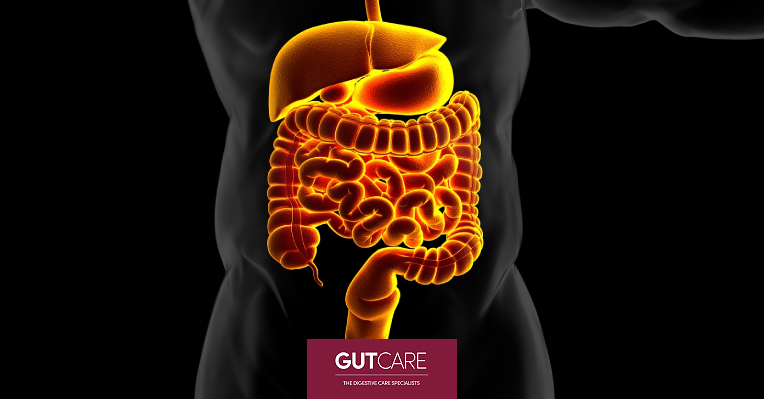Understanding Your Digestive System & Its Digestion Process

Just like how we breathe, drinking and eating is a natural and rather straightforward process in life. However, the process that begins in our body after a meal is a vital and complex one. This process, also known as digestion, enables our body to absorb crucial nutrients for our body functions while removing any generated waste.
In this article, we will explore everything you need to know about your digestive system as well as how you can protect it.
Digestion for viability
Our body requires nutritious food to function healthily. Our digestive system processes what we consume in a systematic manner, extracting the essential nutrients and absorbing them into our bloodstream. These essential nutrients include water, minerals, vitamins, proteins, fats, and carbohydrates that are then used for growth, cell repair, and energy production.
They are then broken down further into even simpler molecules for absorption. For example, proteins are broken down into amino acids, while carbohydrates are broken down into simple sugars.
Which organs are part of the digestion process?
The digestive system is made up of the gastrointestinal (GI) tract, which can be split into two categories:
- Hollow organs: Large intestine (Rectum, colon, cecum, and appendix), small intestine (Ileum, jejunum, and duodenum), stomach, oesophagus, and mouth.
- Solid organs: Gallbladder, pancreas, and liver
Besides the GI tract, our nervous and circulatory system aids in the digestion process by coordinating the entire process and distributing the absorbed nutrients to other parts of our body, respectively. Hence, having a healthy body is vital in ensuring an optimal digestion process. Going for regular medical check-ups and, in this case, gastroenterology visits are vital.
The mechanics of digestion
The digestion process begins at the mouth with the chewing of food. In our mouth, our salivary gland produces saliva, which aids in the softening of the food to allow it to go down our oesophagus smoothly. Saliva also contains amylase, an enzyme that helps to break down any starch that is present in our diet.
Through peristalsis, the contraction and relaxation of the circular and longitudinal muscles in our oesophagus, the food contents travel to our stomach. Once the food contents reach our stomach, the enzymes and acid secreted from the glands of our stomach lining further break down the food contents. Our stomach muscles mix the food contents before transporting it to our small intestine.
In our small intestine, the food contents are further mixed and broken down by enzymes produced by our liver and pancreas. The bile produced by the liver aids in digesting vitamins and fats, while the enzymes produced by our pancreas aid in breaking down proteins, fats, and carbohydrates. In addition, our gut microbiome also helps to break down carbohydrates. Lastly, the mucosa, which is our small intestine lining, will absorb the digested nutrients and water into our bloodstream, which will be transported to other parts of our body.
The remaining food contents will then be further broken down in the large intestine by bacteria to generate vitamin K, which is vital for the creation of proteins essential for the building of bones and blood clotting. Our large intestine will also absorb any remaining water content, converting whatever is left into solid stools, which are then passed out through our anus.
Variation in digestive duration
A digestion process can take up to a couple of hours. Food typically remains in our stomach for 40 minutes to two hours and again for similar durations in our small intestine. Typically, the denser the food, such as those high in proteins and fats, the longer it will take to break down. On the other hand, food high in carbohydrates breaks down the fastest, hence why they are able to provide quick energy boosts.
However, there are other factors that affect our digestive duration, such as having a sedentary lifestyle, reduced sensory perception levels, as well as dental issues. Age is also a critical factor in our digestive duration. Beginning from our mouth, age might lead to reduced production of saliva and reduced jaw strength, causing difficulty in swallowing or chewing. From our oesophagus to our intestine, our muscles might become less efficient, weaker, and stiffer with age.
How, then, can we protect our digestive system as we age?
There are four ways:
1. Maintaining a healthy diet: That means ensuring that your diet is high in fibre, antioxidants, and calcium. You can consume things like raw vegetables, whole grains, fruits, tofu, mashed sardines, and ikan bilis.
2. Reducing your salt and trans-fat intake: Such foods increase your risk of water retention and chronic diseases. In fact, it is found that high trans-fat intake increases the risk of developing fatty liver symptoms.
3. Observe healthy dental hygiene: Our mouth is the first stage of our digestion. It is where we rely on our teeth to chew our food properly. Poor dental hygiene leads to several issues which might affect our chewing. Conduct regular dental visits, especially if chewing becomes hard.
4. Conduct regular medical check-ups: Regular medical check-ups, from general body ones to gastrointestinal and dental ones, are vital in ensuring the state of your body. It also allows you to get prompt medical attention should there be any issues.
Conclusion
Our body breaks down food so that it can absorb the vital nutrients. It is a crucial process that helps to sustain life. Hence, protecting it from digestive issues, whether it be less severe ones, such as indigestion, diarrhoea, and dysphagia, or more severe ones, such as GERD, diverticular disease, and gastric polyps, is crucial.
Here at GUTCARE, as one of the leading digestive care specialists in Singapore, we aim to provide our patients with the most comprehensive and specialised digestive group practices. With services such as cancer screening, endoscopy, gastroscopy, and colonoscopy, we are able to ensure that your digestive system is healthy and prompt treatment is conducted if necessary.
Click here to make an appointment with us today!
Reference(s):
https://mirxes.com/blog/digestion-in-stomach/

HAVE AN ENQUIRY?
You may also send in an enquiry via our online form if you have questions pertaining to your visit or consultation.

FIND OUT MORE ABOUT OUR DOCTORS
Unsure of which doctor to speak to? Take a look at our doctors’ profile to find out more.




